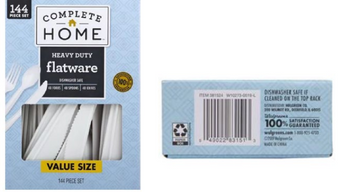In an usual but not unprecedented move, the Advertising Standards Authority has reviewed its own recent decision about Calvin Klein's ad featuring FKA Twigs. It appears to have done so on its own initiative, rather than as a result of a request for Independent Review by Calvin Klein, following widespread criticism, including by FKA Twigs herself. To be honest, we are a little bit hurt that their new decision and blog post makes no reference to our own thoughtful observations that you cannot objectively assess objectification of women, and that they failed to take account of the singer's own rights of freedom of expression.
In the original decision, the ASA concluded that the image of FKA Twigs was overly sexual and therefore in breach of the CAP Code, rather than being merely mildly sexual and therefore compatible with it. As a result, the ad both (a) objectified her as a woman and (b) was inappropriate for use in an untargeted medium such as a poster ad. You may recall that these two posters featuring Kendall Jenner were originally found to be not guilty of either objectifying or overly sexualising her.


The amended decision now says that although the image did not objectify FKA Twigs, it was still too sexual for use in a poster ad, but this remains a bone of contention. The ASA's blog post has a slightly self-congratulatory tone, proclaiming, “Our decision to ban only the poster featuring FKA Twigs was widely criticised, not least by the singer herself. We’re not deaf to the commentary that surrounds our decision making. We’re genuinely interested in hearing what people think and have to say. And we’re not afraid to challenge our own thinking and change our decisions if we think we’ve got it wrong.”
It is a good thing that the ASA has decided to look at this decision again, particularly on its own initiative, and that is to be applauded. But the outcome remains that the image of the FKA Twigs is still banned from being used in posters because it is overly sexual, whereas the two images of Kendall are only mildly sexual and therefore perfectly permissible for use in posters. The revised adjudication places great weight on the fact that in the FKA Twigs photo you can see the side of one breast and the side of her bottom, and while this does not amount to objectification, it does make the image overly sexual.
Surely the sexual nature of an image is about much more than whether the side of a breast or a bottom is visible? To my mind, this iconic image of Marilyn Monroe is one of the most sexually powerful images of a woman ever created, and yet her breasts and buttocks are entirely covered.

However, more relevant for these purposes is the ASA's recent history of adjudications in this area. For example, take the adjudication about fashion brand Misguided for their poster ads from March 2020.

The image on the left of the model in the blazer was found to be overly sexual and therefore to objectify women, but the image of the same model in the pink wrap mini dress was not. In addition, the image on the right was considered to be acceptable for use as a poster on the London Underground.
It is possible to see a distinction between the FKA Twigs image and those of Kendall Jenner, as well as the one from the Misguided campaign which was not banned. It all comes down to a little bit of bare flesh in the wrong place. Any yet having decided to go back and revisit their previous decision, it seems a shame that the ASA did not go for a root and branch reform, and simply conclude that the two complaints against the FKA Twigs ad were not upheld on either count. Her photo is neither objectifying nor overly sexual, regardless of a bit of bare flesh.
Going forward, the lesson for fashion brands wanting to show some bare flesh in their poster ads is to follow the sage advice of the late Kenny Everett, and make sure that its all done in the best possible taste.




/Passle/5ca769f7abdfe80aa08edc04/SearchServiceImages/2026-01-05-19-20-06-462-695c0ee6274a2eaabbabd008.jpg)
/Passle/5ca769f7abdfe80aa08edc04/SearchServiceImages/2026-01-05-19-14-34-741-695c0d9a8674a83eb907512c.jpg)
/Passle/5ca769f7abdfe80aa08edc04/SearchServiceImages/2026-01-05-19-09-28-382-695c0c68f06df27e38576210.jpg)